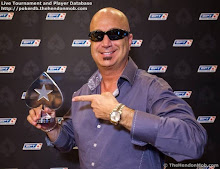Poker has captivated millions as a thrilling mix of luck, strategy, and psychology. For many, it’s just a fun game to play now and then. But some players dream bigger, transforming their hobby into a professional career. Becoming a full-time poker player takes more than just knowing the rules; it requires a solid plan, discipline, and emotional resilience. If you’re serious about making poker your profession, this guide will walk you through fundamental, actionable steps to get there.
What It Means to Be a Professional Poker Player
Becoming a pro isn’t simply about playing poker well or winning big pots occasionally. It’s about treating poker like a business. This means managing your money wisely, continuously improving your skills, and maintaining mental toughness. You’ll face streaks of bad luck and tough opponents, so understanding and accepting these realities early on is critical.
Take Jake’s story as an example. He initially thought poker was “easy money,” but after several losing sessions, he realized that without discipline and preparation, it’s easy to lose. Once he committed to a professional mindset—tracking results and analyzing his mistakes—his game and results improved dramatically.
Deepening Your Understanding of the Game
Knowing the rules is just the starting point. To compete professionally, you need a firm grasp of poker strategy, including concepts like position, pot odds, bet sizing, and opponent tendencies. Learning these skills often involves a combination of reading, watching videos, and hands-on practice.
However, don’t get stuck in endless theory. Practical application is key. For example, Sarah balanced her studies by immediately applying new strategies in low-stakes games, which helped her build confidence and identify which tactics worked in real situations.
The Importance of Bankroll Management
One of the biggest pitfalls for aspiring pros is poor bankroll management. Professional poker requires playing within your financial limits to survive inevitable downswings. Treat your poker bankroll like a business account—separate from personal funds—and never risk money you can’t afford to lose.
Many pros follow the rule of having at least 20 to 30 buy-ins for their stake level. Lisa learned this lesson the hard way after losing a large portion of her funds playing above her bankroll. After adopting strict bankroll discipline, her results stabilized and improved.
Surround Yourself with a Learning Community
Poker can feel like a solitary pursuit, but joining a community or finding study partners can speed up your growth. Engaging with others allows you to discuss hands, share experiences, and get honest feedback on your game.
David, for example, joined a local poker group that met regularly for review sessions. This accountability and fresh perspectives helped him identify mistakes and avoid repeating them.
Gaining Experience in Both Live and Online Poker
Playing in different environments broadens your skill set. Online poker offers fast action and the ability to multi-table, which improves decision-making speed and adaptability. Live poker, meanwhile, develops your ability to read physical tells and control your emotions at the table.
Balancing both formats is ideal. Alex began online but started attending live tournaments locally, which enhanced his confidence and ability to read players in person.
Cultivating Emotional Resilience
Poker is a mental game filled with ups and downs. Bad beats and losing streaks can lead to tilt, a state where frustration causes poor decisions. Building emotional resilience is essential to maintaining focus and making rational plays.
Techniques like mindfulness, regular breaks, physical exercise, and journaling about your mindset can help you stay calm and centered. Emily found that daily meditation sessions improved her ability to bounce back after challenging games.
Planning Your Transition and Setting Achievable Goals
Don’t rush into full-time poker without a plan. Setting clear, realistic goals helps you track progress and make steady improvements. Whether it’s building a specific bankroll, consistently beating a stake level, or cashing in local tournaments, concrete milestones provide motivation and direction.
Chris kept his day job while playing poker in the evenings and on weekends. After two years of consistent growth and savings, he leaped to playing professionally with a safety net in place.
Staying Flexible and Committed to Growth
Poker strategies and player pools change over time. Staying ahead means continuous learning, adapting to new tactics, and reviewing your play regularly. Consider coaching or exploring new game types like tournaments or mixed games to keep your skills sharp.
Remember, success in poker is a marathon, not a sprint. The pros who thrive embrace change and stay curious, always working to refine their craft.
Turning your poker passion into a profession is a challenging journey. Still, by embracing the realities of the game, mastering core skills, managing your bankroll wisely, engaging with others, gaining diverse playing experience, building emotional strength, planning your transition, and staying adaptable, you can make a sustainable poker career. With patience and persistence, the cards will fall in your favor more often than not.




0 Comments